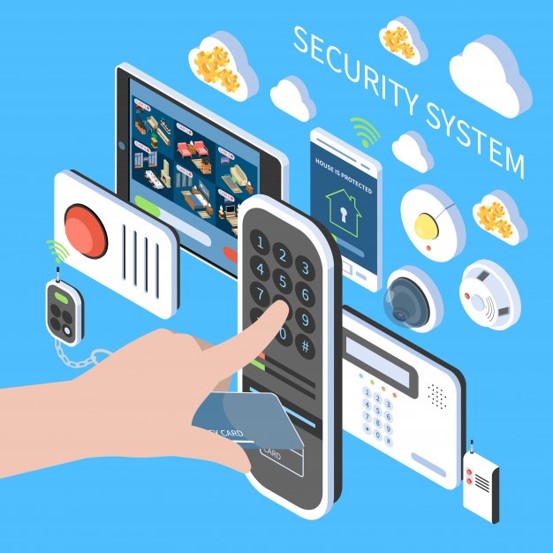When it comes to protecting your home or business, traditional locks and alarms might not be enough. In today’s tech-driven world, smart security systems are quickly becoming the go-to solution for comprehensive safety.
But the big question on many people’s minds is: Are smart security systems really worth the investment?
Whether you’re a first-time buyer or thinking about upgrading from an older setup, this guide will help you understand the value behind these systems, how they work, and what to expect in return for your money.
Quick Overview
Smart security systems combine advanced technology like motion sensors, real-time alerts, and app-controlled features to keep your property secure—no matter where you are. Unlike traditional setups, smart systems offer remote access, integration with other smart devices, and automated protection features.
Here’s what you’ll learn in this post:
- The key benefits and limitations of smart security systems
- What makes them different from traditional security systems
- When they’re most useful (and when they might be overkill)
- Realistic scenarios and tips for choosing the right one
Want to dive deeper? Keep reading!
What Makes a Security System “Smart”?
At its core, a smart security system goes beyond standard alarms. It uses internet connectivity, cloud-based services, and mobile apps to give you full control and awareness of your environment.
Key components often include:
- Smart cameras with live streaming and motion detection
- Door and window sensors that send real-time alerts
- Mobile apps to arm, disarm, and monitor activity remotely
- Integration with smart home assistants like Alexa or Google Assistant
- Cloud storage or SD card backup for video footage
These systems can often be tailored to different needs, from small apartments to large homes and commercial properties.
The Pros of Smart Security Systems
Why are so many homeowners and business owners switching to smart setups? Here’s what makes them appealing:
1. Remote Monitoring: Check in from anywhere using your phone or tablet. Whether you're at work, on holiday, or just in bed, you’re always in control.
2. Real-Time Alerts: Get instant notifications if a door opens, motion is detected, or your camera senses suspicious activity.
3. Customisable Automation: Set your system to arm itself when you leave home, or turn on lights when movement is detected outside.
4. Easy Integration: Connect your security setup with smart lighting, locks, and even voice control to streamline your home automation.
5. No Need for Complex Wiring: Most smart systems are wireless and easy to install—perfect for renters or those who don’t want permanent changes.
Things to Watch Out For
While smart systems are powerful, they’re not without their drawbacks. Here are a few things to keep in mind:
- Reliance on Wi-Fi: If your internet goes down, some features may stop working.
- Privacy concerns: Cloud-based video storage could be vulnerable if not properly secured.
- Monthly fees: Some systems require subscriptions for full features like cloud storage or advanced monitoring.
- Initial setup cost: Smart security systems can be more expensive upfront compared to basic alarm kits.
Pro Tip: Always choose systems that offer encrypted data, two-factor authentication, and regular software updates to stay secure.
Quick Guide: Real-Life Help for Choosing the Right Smart Security Setup
Let’s say you’ve just moved into a new home and want peace of mind when you’re out or asleep. You're not a tech expert, and you're trying to avoid overcomplicating things. Sound familiar?
Common Challenges:
- Do I need professional installation or can I do it myself?
- Will I really use all the features or will they just confuse me?
- What happens if I lose Wi-Fi or forget to arm the system?
How to Solve It:
1. Start with the basics: Opt for a starter kit that includes motion sensors, a camera, and an app. You can always expand later.
2. Go for user-friendly brands: Look for systems that have easy setup processes and strong customer reviews for usability.
3. Choose systems with offline backups: That way, even if your internet drops, your cameras and alarms still work locally.
4. Enable automation and schedules: Set your system to auto-arm when you leave based on your phone’s location.
Why It Works:
By starting simple and focusing on reliable features, you reduce stress and avoid overspending. You’ll get comfortable with the tech while still enjoying meaningful protection.
Need help choosing a smart security system that fits your lifestyle? Reach out for expert guidance!
FAQs: Smart Security Systems
Q: Can I use a smart security system if I rent my home?
Absolutely. Many smart systems are wireless and easy to move. Look for systems with peel-and-stick sensors and battery-powered cameras that don’t require drilling.
Q: Do I need a subscription to use smart security systems?
Not always. Basic functions usually work without a subscription, but features like cloud video storage, professional monitoring, and advanced analytics might require a monthly fee.
Q: Are smart security systems safe from hacking?
Most major brands implement strong encryption, but you should still take precautions:
- Use strong, unique passwords
- Enable two-factor authentication
- Keep firmware and apps up to date
Q: What happens if the power goes out?
Many smart systems have backup batteries that keep them running during outages. Some even have cellular connections that take over if your Wi-Fi goes down.
Conclusion
So, are smart security systems worth it? In most cases, the answer is a resounding yes—especially if you value flexibility, remote access, and real-time alerts.
They offer a level of convenience and control that traditional systems simply can’t match.
However, like any investment, it pays to choose carefully. Consider your specific needs, lifestyle, and budget. Start simple if you're unsure, and expand as needed.
Whether you’re protecting your home, your family, or your business—smart security systems put you in the driver’s seat of safety.





Comments